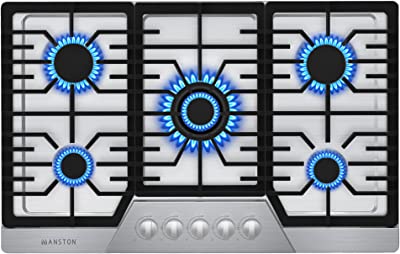
 Save Upto $850 ›
Save Upto $850 ›The debate over whether to ditch your gas stove for an electric one has been ongoing for years. Gas stoves have long been the go-to choice for home cooks, but with advances in technology, electric stoves have become a more viable option. In this blog, we will explore the pros and cons of gas stoves and electric stoves to help you decide whether to ditch your gas stove.

Gas stoves have been the preferred choice of home cooks for many years. They are known for their precise temperature control and quick heat-up times. Here are some advantages and disadvantages of gas stoves:
Gas stoves allow for precise temperature control, which is essential for certain cooking methods like searing, sautéing, and simmering.
Gas stoves heat up quickly, which can save time when cooking.
The visible flame of a gas stove allows you to see the heat source, which can be helpful when adjusting the temperature or checking for hotspots.
Gas stoves can be a safety hazard if not properly maintained or installed. There is a risk of gas leaks, which can lead to fires or explosions.
Gas stoves require regular maintenance, such as cleaning the burners and checking for gas leaks.
Gas stoves are not as energy-efficient as electric stoves, as some of the heat generated is lost to the surrounding air.

Electric stoves have become a more popular option in recent years due to advances in technology. They offer several advantages and disadvantages over gas stoves. Here are some of them:
Electric stoves are easy to clean, as there are no grates or burners to remove.
Electric stoves are more energy-efficient than gas stoves, as all the heat generated is directed to the cookware.
Electric stoves are considered safer than gas stoves, as there is no risk of gas leaks.
Slow Heat-Up Times:
Electric stoves heat up slower than gas stoves, which can be frustrating when cooking.
Electric stoves can be more challenging to control the temperature, especially when transitioning from high heat to low heat.
Electric stoves are generally more expensive than gas stoves, and installation costs may be higher.
The decision to ditch your gas stove ultimately depends on your preferences and cooking style. While gas stoves offer precise temperature control and quick heat-up times, they can be a safety hazard and require regular maintenance. On the other hand, electric stoves are energy-efficient, easy to clean, and safer, but they may have slower heat-up times and be more challenging to control the temperature. Ultimately, the decision comes down to what is most important to you in a stove. If you are considering making the switch to an electric stove, be sure to research and compare the various models to find one that meets your needs and budget.